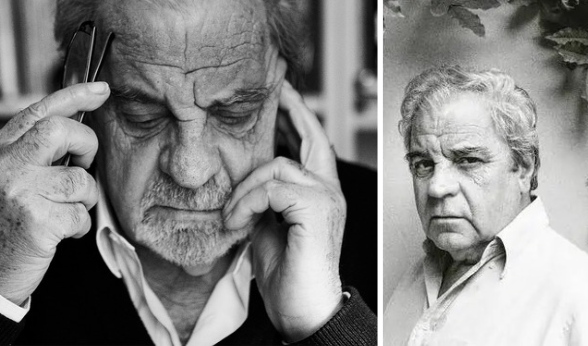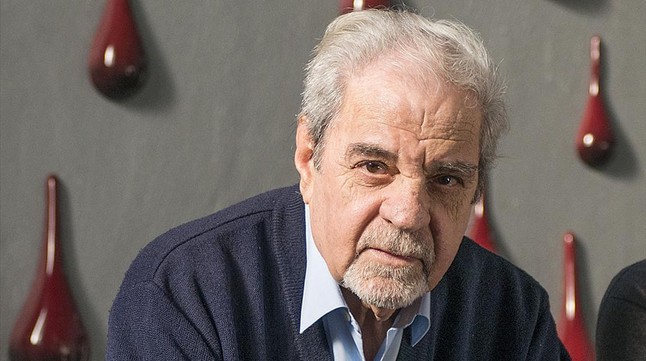Celebrity
Who Is Juan Marsé? All About the Spanish Novelist & Journalist

Juan Marsé was one of the most influential Spanish novelists and journalists of the 20th century. Known for his vivid storytelling, his works often explored post–Civil War Spain and the struggles of ordinary people. His legacy continues to inspire modern readers worldwide.
Quick Bio
| Quick Bio of Juan Marsé | Details |
|---|---|
| Full Name | Juan Marsé Carbó |
| Birth Date | January 8, 1933 |
| Birth Place | Barcelona, Spain |
| Nationality | Spanish |
| Occupation | Novelist, Journalist, Screenwriter |
| Famous Works | Últimas tardes con Teresa, Si te dicen que caí, Rabos de lagartija |
| Major Awards | Miguel de Cervantes Prize (2008), Premio Planeta (1978) |
| Writing Style | Realism, social critique, post-war narrative |
| Death | July 18, 2020 |
| Legacy | One of Spain’s most celebrated literary voices of the 20th century |
Early Life and Background

Juan Marsé was born in Barcelona in 1933, a time when Spain was heading toward great social and political upheaval. His early life was deeply shaped by the Spanish Civil War and the aftermath that followed. Growing up in a working-class environment, Marsé developed a sharp awareness of social inequality, which later became a defining feature of his literature. He was adopted as an infant, and this experience influenced his identity and worldview, giving his novels an underlying theme of belonging and displacement.
Education and Early Career

Although Marsé did not follow a traditional academic path, he immersed himself in literature and began working at a jewelry workshop. His passion for storytelling led him to write short stories during his youth. Later, he moved to Paris, where he worked as a laboratory assistant and began engaging with other Spanish exiles. These early experiences broadened his worldview and gave him material for the complex social narratives he would later publish.
Entry into Literature
Marsé’s first novel, Encerrados con un solo juguete (1960), signaled the beginning of his literary journey. It was followed by Esta cara de la luna (1962), but his breakthrough came with Últimas tardes con Teresa (1966), which won him the Biblioteca Breve Prize. This book brought him recognition as a sharp observer of Spanish society, blending social critique with compelling storytelling.
Writing Style and Themes
The hallmark of Marsé’s writing was his realist narrative style. He often used irony and humor to expose hypocrisy, corruption, and class divides in Spanish society. His novels dealt with themes such as identity, memory, love, social injustice, and the aftermath of war. Marsé was also known for portraying Barcelona not just as a backdrop but almost as a character itself, filled with its struggles and vibrancy.
Major Works and Contributions

Some of Juan Marsé’s most celebrated works include:
Últimas tardes con Teresa (1966) – A love story across class boundaries
Si te dicen que caí (1973) – A bold narrative about the harsh realities of Francoist Spain
Un día volveré (1982) – A story of return, memory, and resilience
Rabos de lagartija (2000) – Which earned him the prestigious Premio Nacional de Narrativa
These works established him as one of the most important voices in Spanish literature, offering a lens into the human condition during and after dictatorship.
Role as a Journalist
Beyond fiction, Marsé worked as a journalist, contributing essays and articles that reflected his sharp wit and critical stance on politics and culture. His journalistic career complemented his novels, as both mediums allowed him to critique society and address issues of freedom, censorship, and democracy in Spain.
Recognition and Awards
Throughout his career, Marsé received numerous awards that recognized his contribution to Spanish literature. These include:
Premio Planeta (1978) for La muchacha de las bragas de oro
Premio Nacional de Narrativa (2001) for Rabos de lagartija
Miguel de Cervantes Prize (2008), considered the highest honor for Spanish-language authors
Such recognition confirmed Marsé’s role as a literary giant who shaped the narrative of post-war Spain.
Influence on Spanish Literature
Marsé’s novels became a reference point for understanding the struggles of Spain in the 20th century. He influenced a generation of writers by showing how literature could be both artistic and socially conscious. His emphasis on realism, social critique, and human dignity continues to inspire modern storytellers.
International Recognition
While Marsé’s work was deeply rooted in Spanish culture, it resonated globally. Many of his novels were translated into several languages, earning him readers across Europe, Latin America, and beyond. His ability to capture universal themes of love, struggle, and identity helped him achieve international acclaim.
Personal Life
Despite his fame, Juan Marsé led a relatively private life. He was described as modest and deeply dedicated to his craft. He married Joaquina Hoyas, and the couple had children. Marsé’s personal experiences—growing up in a working-class neighborhood, facing adoption, and living through political turmoil—strongly influenced his storytelling voice.
Later Years and Legacy
In his later years, Marsé continued writing and engaging with Spanish literary circles. Even as his health declined, he remained a revered figure. He passed away on July 18, 2020, in Barcelona, leaving behind a monumental legacy. Today, his works are studied in schools, universities, and literary programs worldwide, ensuring that his voice continues to shape future generations.
Impact on Spanish Culture
Juan Marsé’s impact went beyond literature. His works reflected the soul of Barcelona, the struggles of ordinary people, and the resilience of Spanish society. He contributed to shaping Spain’s cultural memory, ensuring that the pain and hope of post-war generations would not be forgotten.
Legacy in Modern Literature
Marsé remains a pillar of modern Spanish literature. His exploration of social inequality, human emotion, and resilience continues to resonate with readers today. Contemporary authors and critics often regard him as one of the most authentic narrators of Spain’s complex history. His influence ensures that his legacy will remain relevant for decades to come.
Conclusion
Juan Marsé was not just a novelist and journalist—he was a storyteller who captured the essence of Spanish life during some of its most turbulent times. His works remain a testament to the power of literature as a mirror of society and a voice for the voiceless. His legacy as a literary icon lives on, inspiring both readers and writers across the world.
FAQs
What was Juan Marsé famous for
He was famous for his novels that depicted post–Civil War Spain and social struggles.
Which is Juan Marsé’s most famous book
His most acclaimed work is Últimas tardes con Teresa, which won the Biblioteca Breve Prize.
Did Juan Marsé win the Cervantes Prize
Yes, he received the Miguel de Cervantes Prize in 2008 for his lifetime contribution to literature.
Where was Juan Marsé from
He was born in Barcelona, Spain in 1933.
When did Juan Marsé die
He passed away on July 18, 2020, in Barcelona.
More Info And Buzz Visit: Dodge Buzz
-

 Celebrity12 months ago
Celebrity12 months agoWho Is Steve Cena? All About John Cena’s Brother and His Life
-

 Celebrity12 months ago
Celebrity12 months agoWho is Nadia Farmiga? All You Need to Know About Vera Farmiga’s Sister
-

 Celebrity10 months ago
Celebrity10 months agoWho Is Drew Pritchard? TV Presenter, Antique Dealer & Rebecca Pritchard’s Ex-Husband
-

 Uncategorized12 months ago
Uncategorized12 months agoWho is Janet Gayle? All About Gary Burghoff’s Ex-Wife












